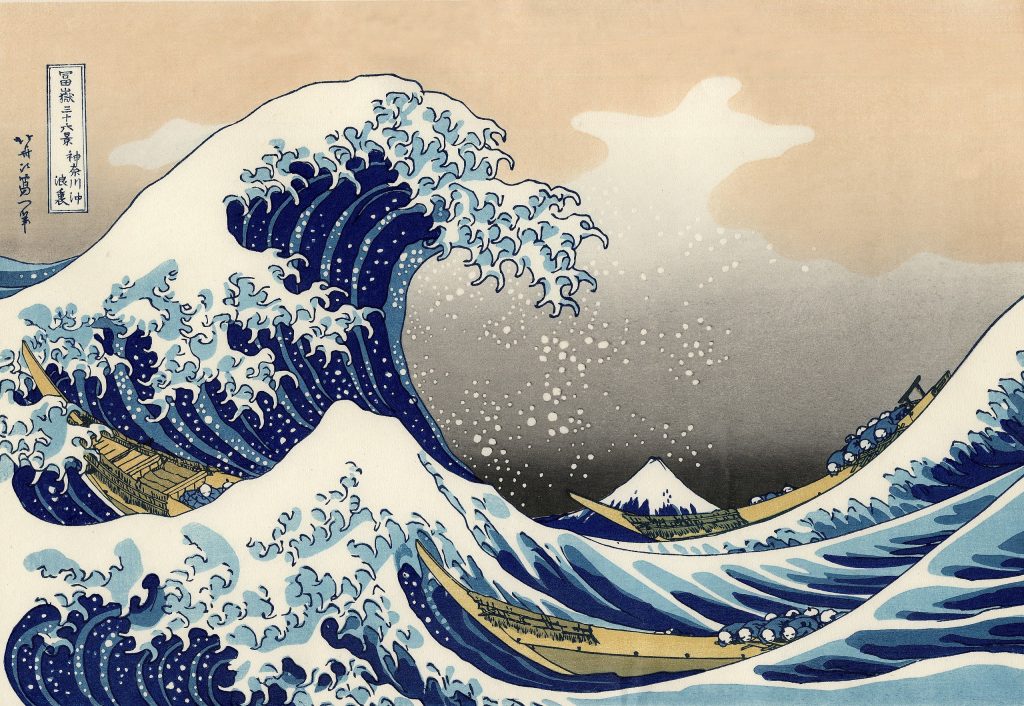An Open Wave: New Calls for Open Access
Creative Commons » Commons News 2023-06-13
 Modern recut copy of The Great Wave off Kanagawa (神奈川沖波裏), from 36 Views of Mount Fuji, Color woodcut. Circa 1930 (original created 1829-1832). Public domain.
Modern recut copy of The Great Wave off Kanagawa (神奈川沖波裏), from 36 Views of Mount Fuji, Color woodcut. Circa 1930 (original created 1829-1832). Public domain.The Open Climate Campaign is pleased to see the recent wave of announcements requiring open access to knowledge that support our goal to make the open sharing of research outputs the norm in climate science. The Campaign recognizes that in order to generate solutions and mitigations to climate change, the knowledge (i.e. research papers, data, educational resources) about it must be open. To us, “open” means: immediately available without embargo, with an open license (or dedicated to the public domain), supporting rights retention, and published in a standardized format that enables machine readability. The emphasis on these specifics in these announcements is what is particularly exciting and different than what has come before.
This open access wave began in August 2022 with the release of the White House Office of Science and Technology Policy (OSTP) Public Access Memo, commonly referred to as the “Nelson Memo,” after Dr. Alondra Nelson, the Director of the OSTP at the time. The memo calls for each of the US Federal Agencies to make “articles resulting from all U.S. federally funded research freely available and publicly accessible by default in agency-designated repositories, without any embargo or delay after publication.” The memo also directs agencies to describe: “the circumstances or prerequisites needed to make the publications freely and publicly available by default, including any use and re-use rights, and which restrictions, including attribution, may apply.” Creative Commons and our partners SPARC, Harvard and American University have been working with the US agencies to help them ensure rights are retained and publicly funded research is openly licensed.
The next crest in the wave was on 20 May 2023, with the release of the G7 Leaders Communiqué, which stated that the G7 will “promote open science by equitably disseminating scientific knowledge, publicly funded research outputs including research data and scholarly publications following the Findable, Accessible, Interoperable, and Reusable (FAIR) principles.” Followed just a few days later, on 23 May, by the release of the Council of the European Union’s proceedings on “High-quality, transparent, open, trustworthy and equitable scholarly publishing.” As waves are measured by the distance between consecutive crests, the decreasing time between these announcements suggests that this open wave is growing.
Once considered simply a good practice, open scholarship is becoming the default for publicly funded research. Both practitioners and decision-makers recognize how critical open access to knowledge is in understanding the world and solving the world’s greatest challenges. While open plans and policies have been cropping up across the world (e.g. Ukraine, Montenegro), these announcements have stipulations that require not just open access to publications, but immediate access and “supporting the rights of researchers to publish, share, disseminate and communicate openly the results and data of their research…as well as maximum accessibility and reusability of research results.” These broader definitions of open match CC’s strategy for better sharing: sharing that is not just open, but that is contextual, inclusive, just, equitable, reciprocal, and sustainable. The tide has turned: it’s now not only important to make research open, but also to enable the full potential of open access by making publications accessible as quickly as possible and enabling the reuse of content and data.
The Open Climate Campaign welcomes these developments and language that aligns with our definition of open. This ongoing wave of announcements heralds real change in enabling better knowledge sharing and collaboration to solve the world’s greatest challenges.
At the Open Climate Campaign, we are working to make the open sharing of research the norm in climate science through global advocacy, one-on-one work with funders, national governments and environmental organizations; and partnerships with open projects and publishers.
You can learn more about how you can participate at www.openclimatecampaign.org.
The post An Open Wave: New Calls for Open Access appeared first on Creative Commons.